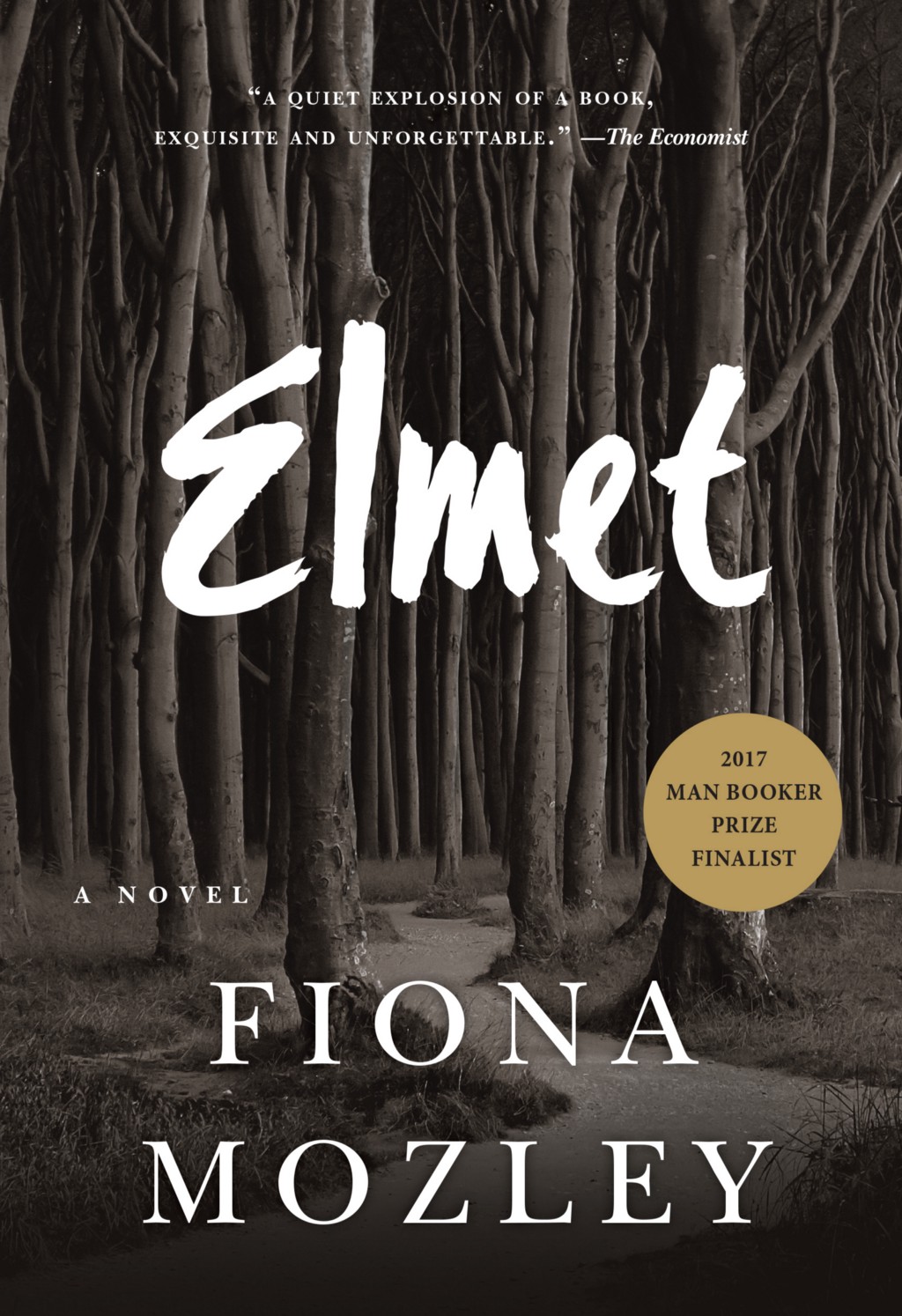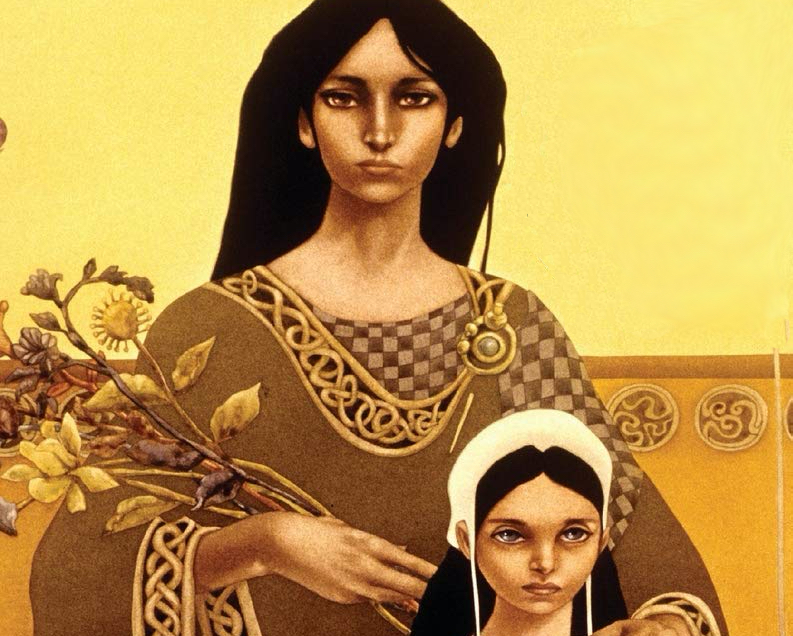interviews
A Culture of Violence is a Culture of Shame
Fiona Mozley’s Booker-nominated debut novel places a bare-knuckle boxer and his children in a declining society

Fiona Mozley’s debut novel, Elmet, shortlisted for the Man Booker prize, is a firestorm of a story. Through carefully woven characters, Mozley spools a tale that simultaneously homes in on the dynamics of a family and assesses the systemic issues within a rural society.
Teenagers Daniel and Cathy live with their father, John, in Northern England. John earns his living from his aggression and strength — he’s an undefeated bare-knuckle boxer — yet his relationship with his children is centered on tenderness. While the sensitive son and his tougher sister struggle with the that roles society has prescribed them, together, the family is carving out what seems like a sustainable life in a post-industrial, rural landscape. But when John begins to organize his neighbors to fight for better living standards, what begins as a property squabble with a landlord spirals out of control, affecting every aspect of the family’s life. Elmet is more than the story of a family fighting for its livelihood. It’s about the ways that childhood shapes who we become as adults, and how violence is embedded and perpetuated in our culture.
Mozley and I spoke over email about the dangers of a society that rewards aggression and functions on individual shame.
Rebecca Schuh: The book’s epigraph is perfect:
“Elmet was the last independent Celtic kingdom in England and originally stretched out over the vale of York…But even into the seventeenth century this narrow cleft and its side-ginnels, under the glaciated moors, were still a ‘badlands,’ a sanctuary for refugees from the law.”
Is it a quote you knew before you began the novel, or did you find it while working on the manuscript?
Fiona Mozley: I came to that particular Ted Hughes collection (Remains of Elmet) after I had nearly finished the novel, which was unfortunate as it is full of real gems that would have complemented the writing process perfectly. That said, the quotation — which is from the introductory material of the collection — was a convenient way to quickly explain to the reader why the novel is called Elmet. I didn’t want to discuss the ancient kingdom too much, as there was a danger of detracting from the story’s contemporary concerns, but the reason I gave it that title was to evoke a sense of antiquity; to remind the reader that the boundaries of the landscape have not always been the same. I wanted it to be a shadow; a ghost, if you like.
RS: The chapters of the book are structured in an interesting and particular way, with longer, conventional chapters interspersed with shorter, italicized vignettes. It creates an effective sense of duality. Can you describe the process of reaching that narrative structure?
FM: The structure of the book is the product of collaboration. I submitted it to my agent, Leslie Gardner, without any of the italicized vignettes in which Daniel travels north. She suggested to me that the manuscript might require something else to bind the novel together. She asked me to reflect on why Daniel, the narrator, wanted to tell this story. It was this that prompted me to write those extra chapters in the separate and, at times, indistinct time-zone. I am very glad that I did. She was right I think — they do bind the novel together. After Elmet found a publisher in the UK, my editor there also wanted me to accentuate those passages. I don’t mind being up-front about this collaboration, or admitting that the original idea to include those vignettes was not my own. Writing can be such a lonely task, and I think those rare moments of collaboration are something to be lauded rather than dismissed.
RS: You explore a really interesting side of the parent-child bond. Can you talk about what fascinates you about that particular relationship?
I am fascinated by interactions between people who are very different, whether those differences are in background, temperament, or even physicality.
FM: I am fascinated by interactions between people who are very different, whether those differences are in background, temperament, or even physicality. Families are interesting because, theoretically, there are profound similarities between their constituents. And yet deep differences can also emerge. In Elmet, the three characters of the central family — Daddy, Cathy and Daniel — are bound tightly by their love for one another, but they are also each confused by how the other two members of the family unit operate. For example, Daddy cannot understand how Daniel and Cathy can possibly survive in the world when, in terms of physicality, neither of them has anything like his strength or magnitude.
RS: Early on in the book, there’s a passage about Cathy and Daniel carrying childhood games into adulthood. I think this is a common phenomenon — how do you think childhood games shape the way adults interact?
FM: Childhood games are the building blocks of society (no pun intended). The manner in which we learn to interact with each other as children goes on to inform all sorts of behaviors as we get older. Schools can be hostile places, and children can be just as cruel as adults, but the playground can also be a place where children learn lessons in empathy and freedom of imagination. In Elmet, Daniel and Cathy find both these things to be true. Through their games, they learn about social relations and discrepancies in power. They also learn to explore these discrepancies, and to question what they see.
RS: I loved the line, “A naked body is just a naked body. Shame is only in beholding.” How did you develop the theme of shame throughout the novel?
FM: This passage is again about the impact of cultural representations and expectations on a person’s sense of self. We are told from a very early age that different parts of our body mean different things. Both Daniel and Cathy learn these lessons, although at the same time both of them find ways to undermine these expectations. I suppose you could also say that the sentence you have quoted was my attempt to present a sort of equivalent for the “tree falling in the woods” aphorism. A naked body alone in a room (or alone in a wood) is a very different thing from a naked body among a crowd. It’s all about situation and perception.
RS: At one point, Daniel says, “I had an inside sort of head. She had an outside sort of head.” I was intrigued by this description and the passage that followed — can you expand a little on that idea?
A naked body alone in a room is a very different thing from a naked body among a crowd.
FM: Daniel is a reader and also a writer, and as with many people who like to engross themselves in those activities, he spends more time reflecting on the world around him than inhabiting it. Cathy is the opposite. She is a person of action. She is more interested in that which is external, outside her own head, be it the copse and the countryside around the family’s house or the processes of building, digging, chopping wood, running, hunting. I wanted to establish a contrast between the intellectual and the physical.
RS: A friend of the siblings, Vivien, says, “A lot of men feel like they should be violent. They grow up seeing a violent life as something to aspire to.” This quote felt especially potent given the current context of male violence being revealed in the press. Can you talk more about that quote and what drives men to violence?
FM: Our cultures seem to be obsessed with violence. That’s an obvious thing to say, but it’s true. The kinds of aggression that are revealed in Elmet are informed entirely by this cultural obsession rather than by any lived experience. I am lucky in that I have had very little first-hand experience of violence; most of what I have seen has been mediated by the arts: by literature, theatre, film, the visual arts, or simply the news, which is, of course, authored like any of these other aforementioned media. Does this make my writing on the subject less authentic? Well, that’s a question for someone else to answer, but I do know that Elmet was, in part, an attempt to explore the deep impact that cultural representations of violence have on both men and women. Some of the male characters in the novel (though not all) find themselves behaving in a manner they think they should behave in. Likewise, Cathy — the narrator’s older sister — is haunted by images and stories of murdered women. As she sees her own body developing into that of a mature woman, her response is that of terror: terror at finding herself, likewise, the victim of violence.
In your question, I think perhaps you’re referring to the recent Hollywood scandals. Is it surprising that men treat women badly in Hollywood? Well, I have no experience whatsoever of that industry, but like most people I have watched a lot of Hollywood films. Are female characters treated badly in Hollywood films? Yes. So I guess there’s your answer.
RS: How did you go about representing a society in decline?
FM: That’s a tricky question. For one thing, I grew up and still live just north of the area I describe in Elmet, and I am not sure I would say it’s in decline! However, it’s certainly true that the novel focusses on the troubles faced by industrialized regions in the post-industrial era. Once the whole area was a forest, then it was a patchwork of fields and agrarian settlements, then mills and factories and coal mines sprang up, and the people who had worked the land were given jobs in these new industries. When the mills and factories and coal mines stopped being profitable they were closed, but these people couldn’t then return to the land. So where do they go? Politicians necessarily work on short-term problems and short-term solutions — that’s the nature of their jobs. But I think it’s also important to take a step back and consider the wide expanse of centuries that recline behind any given moment.
As well as revealing the conundrums posed by regions like Elmet, it was also my desire to touch on some possible solutions, even if those solutions don’t find a full form over the course of the narrative. There are moments of hope, of community spirit, of tenderness. Fundamentally, these are the solutions that these regions require. Yes, it’s true that “community spirit” and “tenderness” do not form coherent social or economic plans, but it’s sentiments such as these that must be at the foundation of any strategy. The biggest obstacle to the regeneration of certain neglected regions — both in the U.K. and possibly in the U.S.A. (though I admit I am not as informed about the situation there) — is that there doesn’t seem to be a genuine desire among policy-makers to consider the plights of these communities. And how do we solve that? Well, by trying to induce a bit of tenderness.









